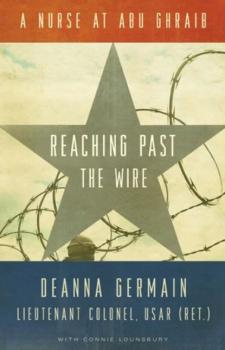ТОП просматриваемых книг сайта:
Биографии и Мемуары
Различные книги в жанре Биографии и Мемуары, доступные для чтения и скачиванияАннотация
On a spring day in 1961, over-the-road trucker Jim Harper was en route from Mauston, Wisconsin, to his home in Minneapolis. At 70 miles per hour, with a combined 60,000 pounds of man, machine, and material, he approached a curve along the Great River Road and hit the brakes. The tractor-trailer didn't slow. Harper's brake lines had been cut.<br /><br />In preceding months, Harper had led an insurgency in his Teamsters' Local 544 to clean up corruption among its leaders. His efforts drew the attention of none other than Jimmy Hoffa, at the time focused on securing his right to lead the national Teamsters organization without government intervention.<br /><br />Jim Harper had his reasons for confronting his local's leadership—a hardscrabble childhood and a stint in Angola prison had left him seeking redemption, and Jimmy Hoffa had publicly called for union reform. But Hoffa, under federal investigation for questionable financial dealings, had deep, dark secrets; the last thing he needed was a spotlight on Minneapolis. Despite the increasing threats to his life and those of his young family, Harper continued to press his case.<br /><br />In this fascinating account, Harper's son traces the interwoven paths of these two men—a criminal icon and a determined vigilante—from their formative years through their unbelievable face-off.<br /><br />?Accolades for Crossing Hoffa:<br /><br />?Best Books of 2007, Chicago Tribune<br /><br />?Best Books, 2008 New York Book Festival<br /><br />?"Honorable Mention" in the 2008 Hollywood Book Festival's Biography/Autobiography category.
Аннотация
When Margaret Williamson left her family's rural Wisconsin farm to work in Minneapolis in 1923, her mother, Olava, wrote regularly with updates about daily activities: laundry, bread baking, plowing, planting, and harvesting the crops. Sometimes she enclosed a note from seven- year- old Helen, who reported on school and shenanigans and how she longed to see Margaret again.<br /><br />So begins decades of stories about a family at once singular— with personal joys and challenges— and broadly representative of the countless small farms that dotted the midwestern landscape in the early twentieth century. As Margaret's niece Sara DeLuca weaves together family tales gleaned from letters and conversations, we learn of births and deaths, of innovations like the automobile, radio, and telephone that drew rural communities together, and of national and international events that brought home stone- hard truths. Depression- era farmers struggled to keep their land and feed their livestock; many failed. During wartime, this family made do just like everyone else.<br /><br />The tale that emerges is one of fierce devotion to family and work, of a changing landscape as smaller farms became part of conglomerates, and of the comforting daily rhythms of life shared with those who know us best.
Аннотация
"Far greater even than the loss of land, or the relentless coercion to surrender cultural traditions, the deaths of over six hundred children by the spring of 1864 were an unbearable tragedy. Nearly one hundred and fifty years after the U.S.–Dakota War of 1862, Dakota people are still struggling with the effects of this unimaginable loss."<br /><br />Among the Dakota, the Beloved Child ceremony marked the special, tender affection that parents felt toward a child whose life had been threatened. In this moving book, author Diane Wilson explores the work of several modern Dakota people who are continuing to raise beloved children: Gabrielle Tateyuskanskan, an artist and poet; Clifford Canku, a spiritual leader and language teacher; Alameda Rocha, a boarding school survivor; Harley and Sue Eagle, Canadian activists; and Delores Brunelle, an Ojibwe counselor. Each of these humble but powerful people teaches children to believe in the "genius and brilliance" of Dakota culture as a way of surviving historical trauma.<br /><br />Crucial to true healing, Wilson has learned, is a willingness to begin with yourself. Each of these people works to transform the effects of genocide, restoring a way of life that regards our beloved children as wakan, sacred.
Аннотация
Minnesota's Will Weaver has been a hunter since he was a young boy, following in the footsteps of his father, a dedicated and seasoned outdoorsman. As he writes, "in the fall, when Canada geese came through and when partridge season opened, [we] heard the far-off thudding report of shotguns—and in November the heavier poom-poom! of deer rifles." Hunting frames Weaver's childhood memories, his relationship with his father, and his own definition of self. And although one side of his family lineage includes men who would not hunt, or go to war, or carry a rifle, Weaver is caught off guard when his son and daughter show no interest in upholding the tradition of the hunt.<br /><br />The Last Hunter is a twenty-first-century collection of deeply personal tales—a truly American story. Weaver's heartfelt rendering sweeps us along on a family journey from an isolated North Dakota farm "built around a fork and shovel" to postmodern America. Grounded in telling and luminous detail, The Last Hunter is an examination of family, life on the land, and those things we hold dear enough to want to carry along, one generation to another.<br /><br />Praise for Will Weaver:<br /><br />?". . . his stories view America's heartland with a candid but charitable eye."—New York Times on A Gravestone Made of Wheat<br /><br />?". . . pitch perfect. Superb."—Kirkus Reviews on Full Service<br /><br />?" Weaver . . . is a writer of uncommon natural talent. He's that rare Real Thing, a writer writing eloquently, often between the lines but always with an undertow of passion about what he knows, where he lives, what he's been through."—Los Angeles Times
Аннотация
For two hundred years, a rogues' gallery of chefs, line cooks, and dishwashers have slaved away, largely unseen, to serve the dining public. Their pedigrees reach back to the first restaurants during the reign of France's Louis XVI and extend to the Delmonico brothers in New York, Escoffier in Paris, and, in Fried: Surviving Two Centuries in Restaurants, a renegade cook in Minneapolis walking like a duck with a whole, raw salmon on his head.<br /><br />Author and professional chef Steve Lerach first stepped through the swinging kitchen doors when he was in high school, starting as a dishwasher, and he never left. He introduces us to an old potwasher who did time for bootlegging, a stuttering Irish chef who collected funds for the bomb throwers of the IRA, and a gay Vietnam vet who found a measure of acceptance only in restaurants.<br /><br />Lerach humorously and poignantly interweaves restaurant legend and lore with his own experiences, exposing similarities not only of profession but of the diverse characters who work the back of the house. Though funny and simply fun to read, these tales often end in tragedy, as various actors succumb to their excesses. Lerach serves up glimpses of the hard work, camaraderie, and satisfaction that distinguish careers in what may arguably be called the world's second-oldest profession.
Аннотация
When Mai Neng Moua decides to get married, her mother, a widow, wants the groom to follow Hmong custom and pay a bride price, which both honors the work the bride's family has done in raising a daughter and offers a promise of love and security from the groom's family. Mai Neng, who knows the pain this tradition has caused, says no. Her husband-to-be supports her choice.<br /><br />What happens next is devastating, and it raises questions about the very meaning of being Hmong in America. The couple refuses to participate in the <em>tshoob</em>, the traditional Hmong marriage ceremony; many members of their families, on both sides, stay away from their church wedding. Months later, the families carry out the <em>tshoob</em> without the wedding couple. But even after the bride price has been paid, Mai Neng finds herself outside of Hmong culture and at odds with her mother, not realizing the full meaning of the customs she has rejected. As she navigates the Hmong world of animism, Christianity, and traditional gender roles, she begins to learn what she has not been taught. Through a trip to Thailand, through hard work in the garden, through the birth of another generation, one strong woman seeks reconciliation with another.
Аннотация
“Every day, I think about quitting this job.”?The job of an emergency call operator continues to change: new technology, new drills, new threats to the peace of the community. In this book, the author of Answering 911: Life in the Hot Seat returns, no longer a rookie, with new insights and stories that amaze and astound. ?“I’ve worked with some of the finest, funniest, most caring assholes who’ve ever lived.”?Caroline Burau takes a job in a single-person dispatch center for the city of White Bear Lake, and then becomes a dispatcher for a ground and air ambulance service. ?“There is no beginning to this story, and no end. The dispatch center never closes and the phones never get shut off. There is just call after call after life after death after life again. And so it goes. And we sit in our hot seats: listening, waiting, and answering 911.”?In 31 chapters packed with funny, difficult, and weird stories–and Burau's own sassy attitude–she reminds readers what's necessary to get this job done, and why it's so hard to leave.
Аннотация
On a frigid afternoon in February 2003, Deanna Germain, a nurse practitioner and new grandmother living in Blaine, Minnesota, received the registered letter she had hoped would never arrive. In six days she was to report for active duty as war loomed in Iraq. The purpose of mobilization: "For Enduring Freedom."<br /><br />With startling detail, Lt. Col. Germain offers a clear-eyed account of life as a nursing supervisor behind the fortified gates of Abu Ghraib. Her duty: To treat Iraqi prisoners, U.S. soldiers, and Marines in need of medical attention. Shortly after she arrived, the notorious prison made headlines around the world for abuses that had stopped months before. Despite unbearable heat, frequent mortar attacks, medical supply shortages, substandard facilities, the relentless stench of war, and sleepless nights quartered in a tiny prison cell, Germain served the medical needs of each of her patients with remarkable humanity.<br /><br />In this crucible of wartime stress, workplace turmoil, and cultural uncertainty, Germain found herself forging powerful connections with colleagues and translators. She learned from translators about normal Iraqi families struggling to survive impossible conditions. And after vowing to avoid personal relationships with prisoners, she became a comfort to many. Duty and compassion, camaraderie and hope all helped to pull her through.
Аннотация
"I would begin thinking about summer on our lake as early as Easter. Yes, it was our lake, not just the lake."<br /><br />In this classic story of a midwestern boyhood, Curtiss Anderson takes readers into the colorful lives of his robust Norwegian family and their wonderfully familiar summerscape in northern Minnesota: the lake place. Sweet childhood reminiscences comprise this coming-of-age memoir set in the poignant summers of the 1930s and '40s. Conversations on the porch with Dear Old Aunt Ingaborg, a heavily accented relative from the Old Country. A budding romance and heartbreak with young Sarah, who lived across the lake. Wild blueberry picking behind Turnaround Island. Joyful tales devoted to the cherished dogs he had outlived—old Shep and Mickey, Nebby, and feisty Bunny. And fond memories of Clara and Leigh, the loving couple who treated the budding writer as if he was their own child.<br /><br />Anderson revisits the notes and letters he scripted as a boy, originally recorded on his hand-me-down Underwood typewriter—his first foray into what would become a distinguished publishing career—to offer Blueberry Summers. Here, the nationally recognized editor offers a funny and warm story of experiences that inspire the imagination.
Аннотация
On an uncharacteristically warm February day in Texas, a young couple sets off in search of a new adventure. The quiet, isolated woods of the resort offer the perfect setting for a romantic weekend for two. They challenge each other to an ATV ride and start off energized, excited, and ready to explore. The adventure that follows, however, is not what they anticipated. After crossing several cattle guards successfully, Donna Valentino attempts to navigate another—only to crash into an unmarked and almost invisible chain. In an instant, her lovers’ weekend turns into a nightmare of injuries, including what would later be diagnosed as a severe brain injury. After months of rehabilitation and a courageous battle to regain her life, Donna wrote Headstrong: Surviving a Traumatic Brain Injury without Losing My Mind, recounting her remarkable journey of recovery and adaptation. Headstrong reveals her practical and positive outlook on life as well as her steadfast determination to make it, which she hopes will be an inspiration to others.










